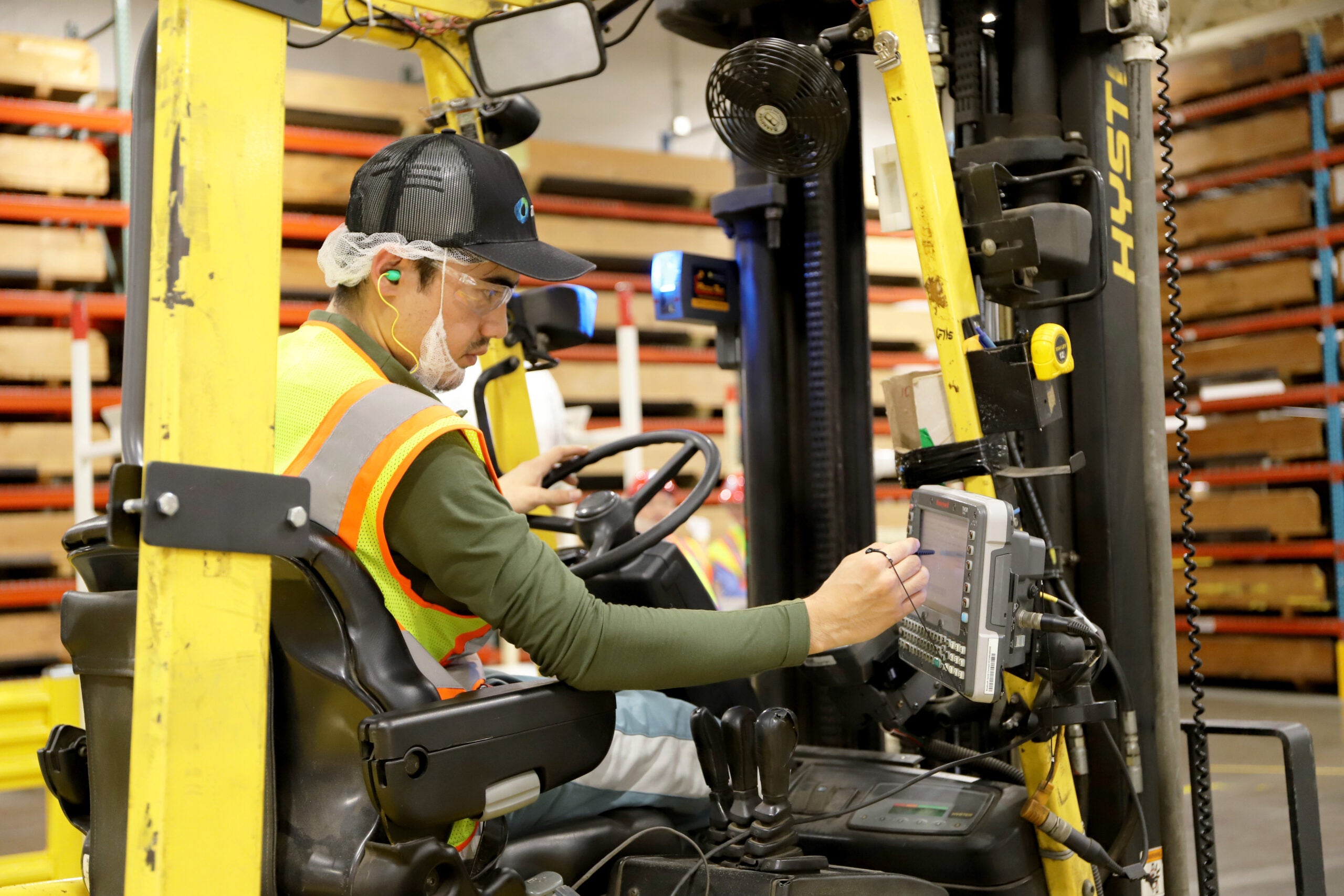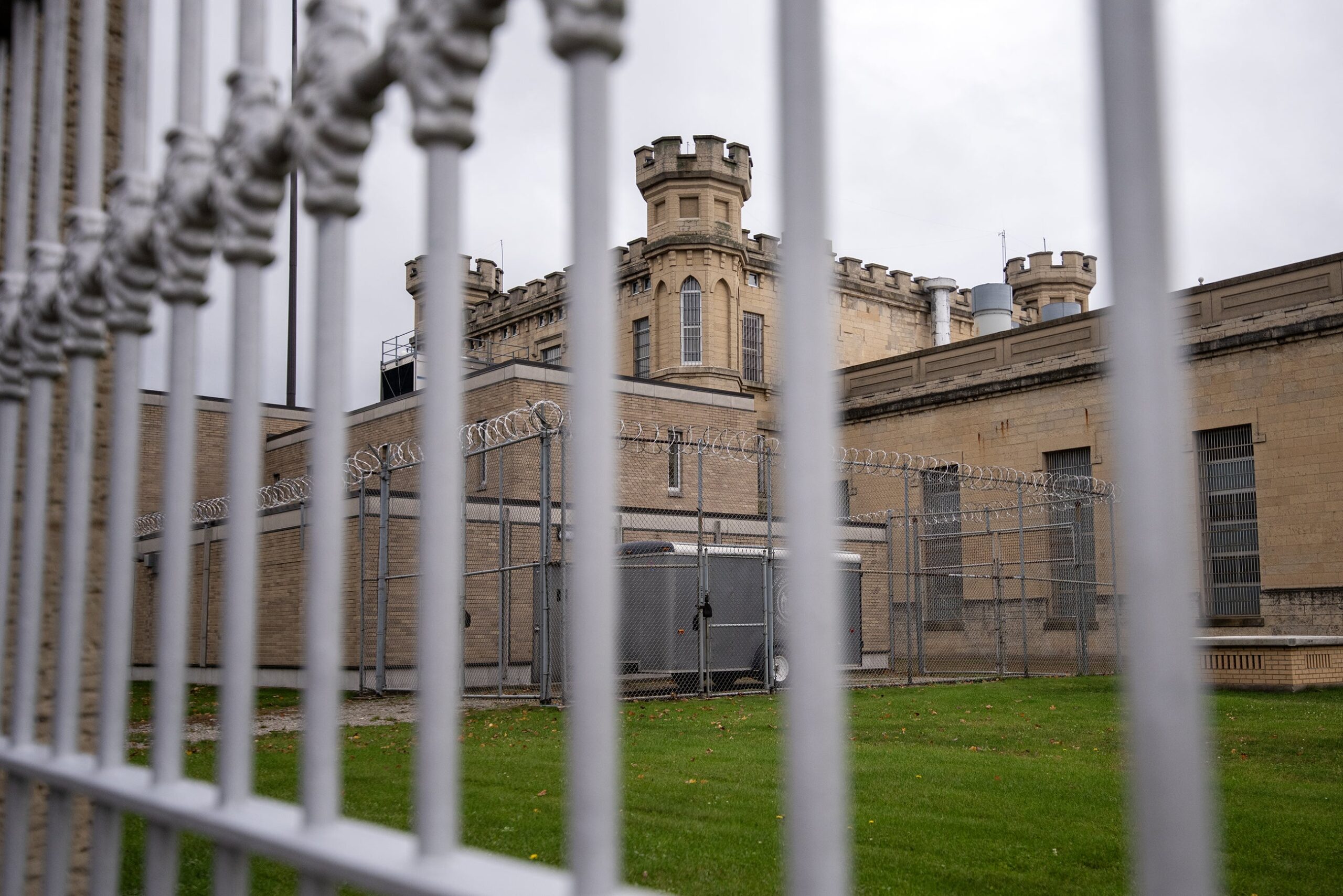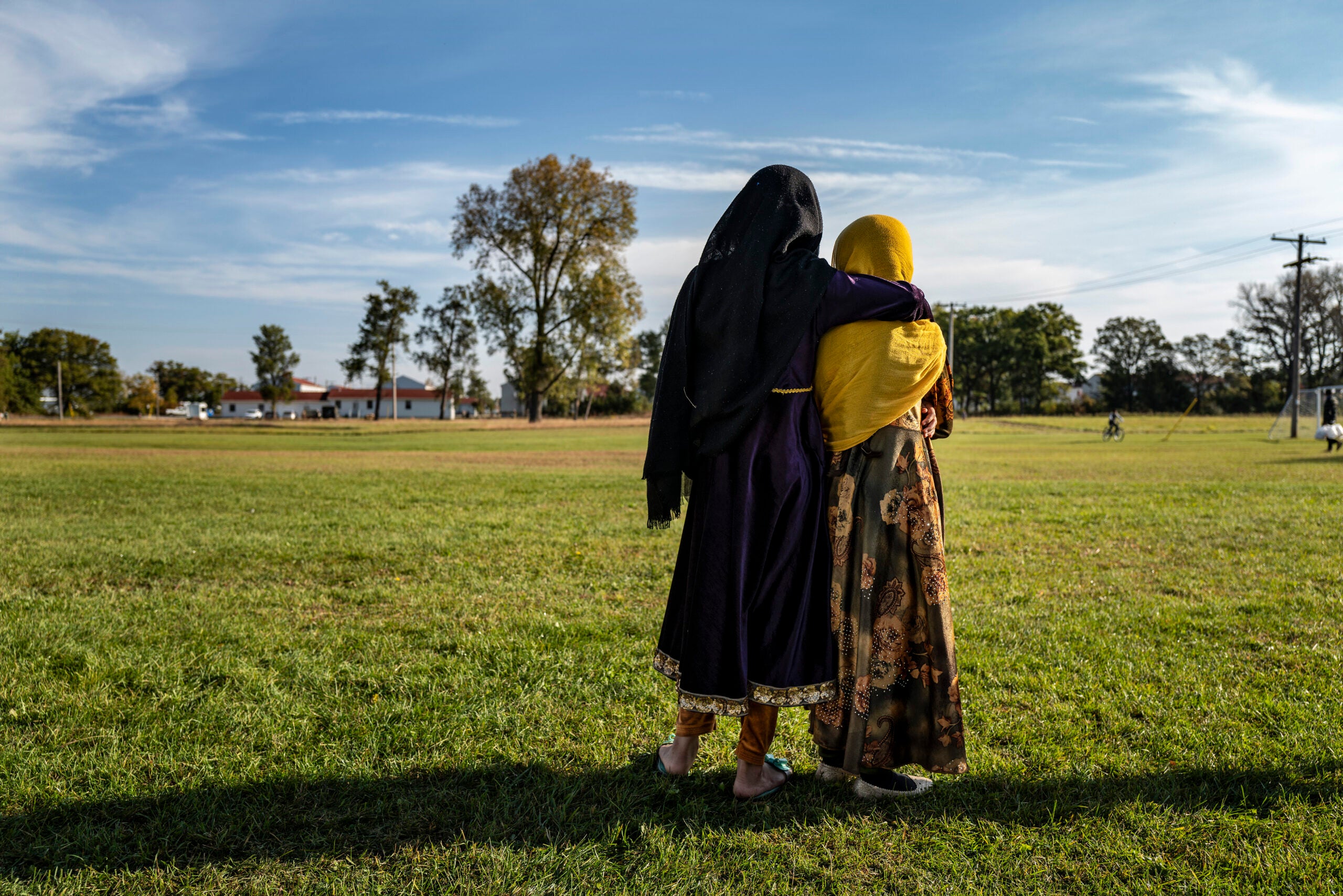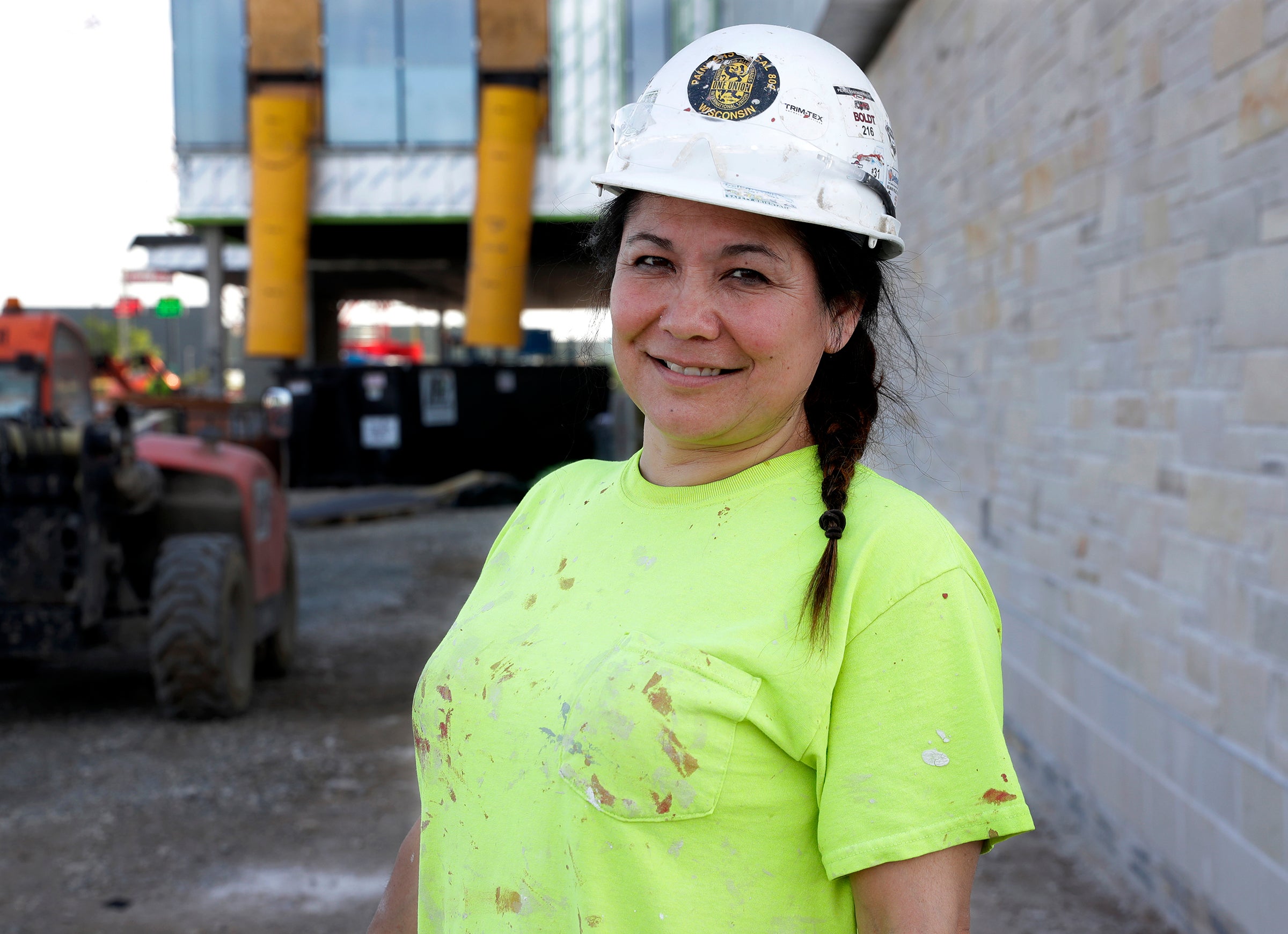Abedi Kapwata, who goes by J.R., grew up in the Democratic Republic of Congo until war broke out and his home country became unsafe.
He still remembers when a soldier came into his home and shot his father in the leg. The incident helped solidify the family’s decision to flee to Uganda about 10 years ago, when J.R. was just 13 years old.
“What made us move from the DRC to Uganda was insecurity,” he recalled.
Stay informed on the latest news
Sign up for WPR’s email newsletter.
In June, J.R. found asylum in the United States. Since arriving in Wisconsin, the organization World Relief Fox Valley helped him find employment as an interpreter for the manufacturer Amcor Flexibles, where he translates documents and interprets languages.
“It is so amazing living in Wisconsin,” he said. “As somebody from Africa, living here is like a dream to me. … My dreams are becoming true in the United States.”
J.R. now lives in Appleton, but he isn’t the only refugee thriving in the Fox Valley. Many refugees are finding family-sustaining employment and helping address the labor shortage in Northeast Wisconsin.
The Fox Valley has seen an influx of almost 1,400 refugees over the last decade, including 181 people from Afghanistan after the U.S. withdrawal last year, according to Tami McLaughlin, the director of World Relief Fox Valley.
The organization helps refugees secure housing, employment and other necessities, and works to educate local communities about the benefits of welcoming refugees, McLaughlin noted. She said about 60 percent of refugees are placed in Oshkosh and around 40 percent go to Appleton.
After arrival, World Relief Fox Valley’s employment specialist meets with adult refugees to discuss their skills, interests and goals. The specialist generally tries to pair refugees with an employer around their first 30 to 60 days in Wisconsin, McLaughlin noted.
She added that World Relief Fox Valley’s employment specialist receives at least one phone call a week from employers looking for workers.
“Refugees have good reputations for employment,” McLaughlin said. “They desire to work. They want to work hard. They want to advance. They want the same things that we want.”
Many of World Relief Fox Valley’s refugees find employment in manufacturing, she said, while others work in health care, retail and in other service industry jobs.
Manufacturing
One manufacturer that has benefited from the influx of refugees is Amcor Flexibles. In 2022, the company hired more than 50 refugees through its “Project Ally” program, a collaboration with World Relief Fox Valley.
Antoinette Heenan, Amcor’s talent acquisition manager, said most of the company’s refugees work in production roles, which includes running equipment, driving forklifts and assisting on machines.
Heenan said the refugees have been a great addition to Amcor’s team.
“As we all know, recruiting and retaining talent is tough nowadays,” she said. “And these individuals have a great attitude, great work ethic, willingness and desire to grow.”
By working in manufacturing, Heenan said many refugees have been able to purchase vehicles and rent larger apartments for themselves and their families, as well as send money to family members still in their home country.
“How scary would it be to be pulled from your country and placed at a completely random place within the United States?” she said. “… These colleagues, with the opportunities for growth that they do have, they can make a better life not just for themselves here, but for their family at home.”
While most of the refugees at Amcor are involved in the manufacturing side, Heenan said there are three, including J.R., who work as interpreters.
As an interpreter, J.R. said he has the ability to help the Fox Valley community by assisting individuals who can’t speak or read English.
“I am not there for money,” he said. “I first dedicate myself personally to the job by serving the community through that job. I enjoy serving the people at my work. That’s the part that I most enjoy.”
Trucking
Earlier this year, Fox Valley Technical College launched a customized truck driver training program to help Somali and Afghan refugees earn a commercial driver’s license to become a semitruck driver.
The program was made possible through a partnership between Fox Valley Tech, the Hidden Talent Project from the Bay Area Workforce Development Board and a $1.6 million grant from the Wisconsin Department of Workforce Development.
Rob Behnke, director of trucking driving at Fox Valley Tech, said the program was an expansion of the institution’s mission.
“With refugees coming to Wisconsin, or coming to the United States, that’s our business model: We’re here to help,” he said. “There are a lot of jobs — especially in the trucking industry right now — if there’s people that are able, willing, have the credentials (and) are qualified. We provide skilled workers for these industry partners.”
One person who participated in the program was Asha Hirsi, a Somali refugee who was passionate about becoming a truck driver.
“I have a husband who’s a truck driver and I used to go with him, so I’ve seen how he works, and sometimes, I see the challenge,” she told WLUK-TV in July. “I cannot wait to get behind the wheel. I think it would be a very exciting day.”
Community benefit
World Relief Fox Valley hopes to resettle another 300 refugees over the 2023 fiscal year, which began last month.
Although refugees are helping to address the labor shortage in Northeast Wisconsin, McLaughlin said they also help enrich communities.
“They make our area much more interesting,” she said. “They bring a piece of the world to Northeast Wisconsin and help expand our worldview.”
Through working with refugees, McLaughlin said she’s learned more about the value of relationships.
“Sitting down for a cup of coffee and taking that time to get to know people is much more important and much more fulfilling than always being on the clock, and always worrying about that to-do checklist and where I have to be next,” she said.
By working with people from different backgrounds, she said individuals start to see that, as humans, we have much in common between cultures.
“We have some things to learn from them,” she said. “If we allow those opportunities to happen, I think we can change too. And that might make us a better community.”
Likewise, J.R. said many refugees hope to give back to their new communities by helping to create positive change.
“We came not only to make money here, or to change our life, or to help our family back in our own country like Congo or Uganda, but some of us came to make the United States very strong,” he said. “Very strong, how? By helping the community to change environments.”
Wisconsin Public Radio, © Copyright 2025, Board of Regents of the University of Wisconsin System and Wisconsin Educational Communications Board.





